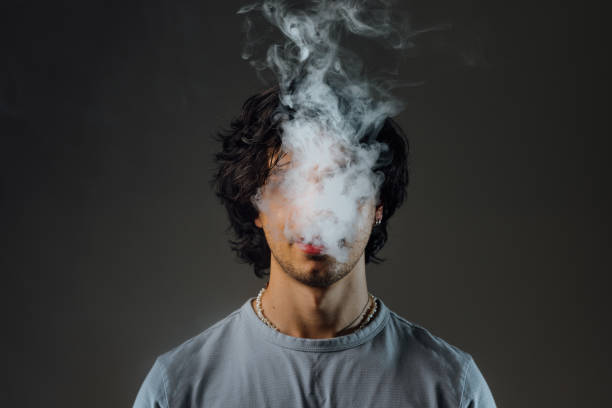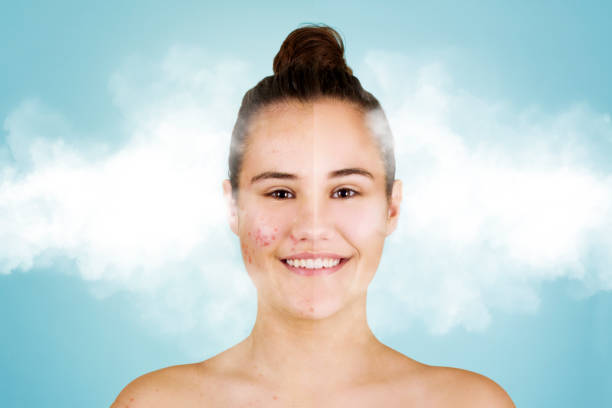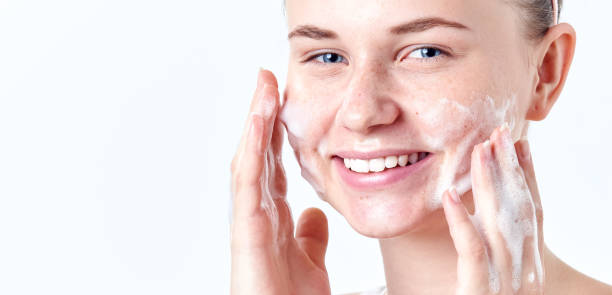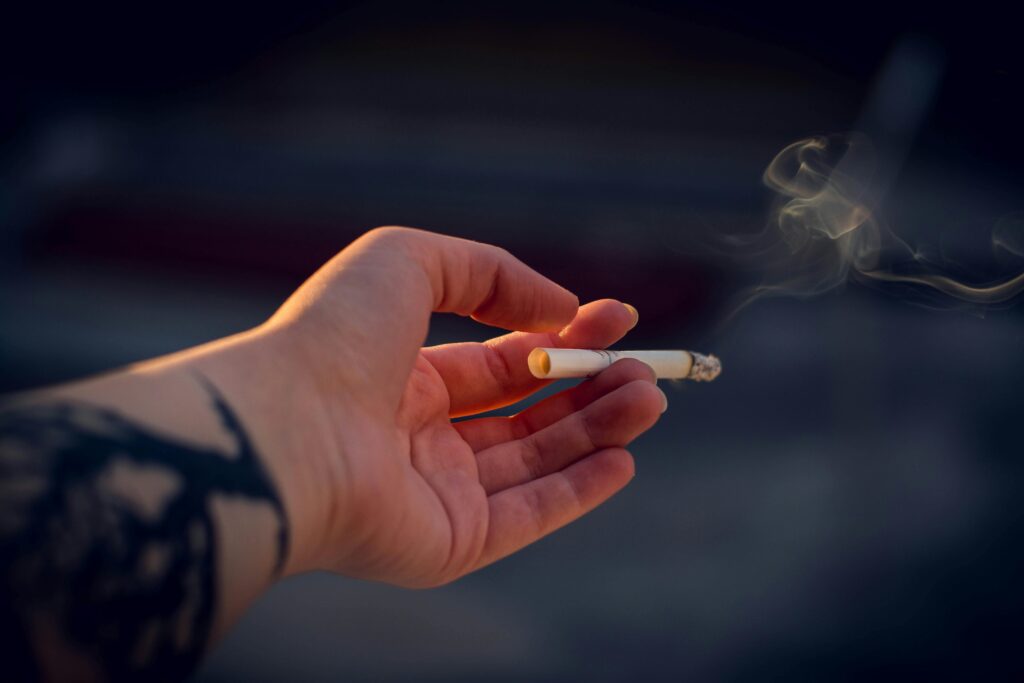Skin Care
You Won’t Believe What Smoking Does to Your Skin
Are you aware of the harmful effects smoking can have on your skin? As a heavy smoker, you should educate yourself on how this behavior affects the health and appearance of your skin. In this article, we’ll look at how smoking can cause severe skin damage and premature aging.
How Smoking Affects Collagen Production
When you smoke, the toxic chemicals in cigarettes constrict your blood vessels, lowering the amount of oxygen and nutrients that reach your skin cells. One of the biggest repercussions is the breakdown of collagen, a protein that gives your skin structure and elasticity. With decreased collagen production, your skin loses firmness and resilience, resulting in drooping and the formation of wrinkles.
Furthermore, smoking raises the levels of free radicals, which are highly reactive chemicals that produce oxidative stress in the body. Free radicals target collagen and elastin fibers, causing them to break down. This increased collagen degradation promotes the formation of fine lines, wrinkles, and other indications of premature aging.

Impact of Smoking on Skin Elasticity and Wrinkles
As previously said, smoking reduces collagen formation, which affects your skin’s suppleness. Collagen is responsible for your skin’s suppleness and strength. When collagen degrades due to smoking, your skin loses its capacity to bounce back, resulting in a lack of firmness and the creation of wrinkles.
Additionally, smoking harms the elastin fibers in your skin. Elastin is another protein that helps your skin stretch and snap back into place. When elastin is depleted, your skin loses its ability to hold shape, resulting in the production of deep wrinkles and creases, particularly around the lips and eyes.
Furthermore, smoking produces recurrent facial gestures, such as pursing your lips to inhale and squinting your eyes to protect them from smoke. These recurrent movements contribute to the formation of dynamic wrinkles, which become more noticeable with time.
Smoking and the Development of Premature Aging Signs
It’s no secret that smoking hastens the aging process. Cigarettes contain dangerous compounds that damage your skin at the cellular level, resulting in premature aging indications. The combination of decreased collagen formation, lower skin elasticity, and increased free radicals produces the ideal environment for accelerated aging.
Smokers frequently develop deep wrinkles, prominent lines, and an aged appearance years before their nonsmoking counterparts. The negative effects of smoking on the skin are cumulative, which means that the longer you smoke, the more damage is done and the more visible the indications of aging become.
The Link Between Smoking and Skin Discoloration
If you smoke, you may have noticed that your skin appears uneven and lifeless. This is because smoking alters blood flow to your skin, resulting in a drop in oxygen and nutrient levels. As a result, your skin may appear pale, sallow, and depleted in vitality.
Furthermore, smoking induces vasoconstriction, which narrows blood vessels and reduces oxygen delivery to skin cells. This can cause uneven skin tone, dark bags beneath the eyes, and an overall lack of luminosity. Furthermore, smoking stimulates the synthesis of melanin, the pigment that gives skin its color, which can lead to hyperpigmentation and discolouration areas.

Effects of Smoking on Acne and Other Skin Conditions
Smoking has long been linked to an increased risk of acquiring acne. Cigarette pollutants can alter your body’s delicate hormonal balance, resulting in excessive oil production and clogged pores. This can lead to the development of acne, blackheads, and whiteheads.
Furthermore, smoking exacerbates preexisting skin disorders including psoriasis and rosacea. Psoriasis is a persistent autoimmune illness characterized by red, scaly spots on the skin. Smoking can cause flare-ups and worsen the symptoms. Similarly, rosacea is a skin condition marked by redness, flushing, and the emergence of tiny, pus-filled pimples. Smoking can worsen rosacea symptoms and make treatment more difficult.
Smoking and Delayed Wound Healing
If you smoke, you may have delayed healing rates for cuts, burns, and other skin injuries. Smoking reduces the body’s ability to heal itself by decreasing blood flow and oxygen availability to the damaged area. This can result in delayed wound healing, an increased risk of infection, and the development of unattractive scars.
Cigarette chemicals also interfere with the formation of collagen, which is required for wound healing. Without enough collagen, the body struggles to regenerate damaged skin tissue, which leads to delayed healing times and poor overall skin health.
The Benefits of Quitting Smoking for Your Skin
Quitting smoking can greatly improve the health and appearance of your skin. As soon as you stop smoking, your body starts to repair the harm caused by smoking. Blood arteries begin to relax and broaden, resulting in increased blood flow and nutrition delivery to your skin cells.
Quitting smoking reduces free radical generation, helping your body to better protect and repair collagen and elastin strands. Over time, this can contribute to increased skin suppleness, less wrinkles, and a more youthful appearance.

Skincare Tips for Smokers
While stopping smoking is the best thing you can do for your skin, there are things you can take to reduce the damage if you aren’t ready to quit. Here are some skincare recommendations for smokers:
- Stay hydrated: Smoking causes dehydration in your skin, so drink plenty of water to keep it moisturized and plump.
- Protect your skin from the sun: Smoking makes your skin more vulnerable to UV damage, so always apply high-SPF sunscreen and seek shade whenever feasible.
- Cleanse and exfoliate regularly: Smoking can clog your pores and cause dull skin. Cleanse your face twice a day and exfoliate frequently to eliminate dead skin cells and encourage cell turnover.
- Use antioxidant-rich skincare: Look for products that contain antioxidants such as vitamin C and E to help neutralize free radicals and protect your skin from further harm.
- Consider professional treatments: If you’re concerned about the effects of smoking on your skin, speak with a dermatologist who can offer treatments such as chemical peels or laser resurfacing to renew your complexion.
Conclusion
Smoking not only hurts your overall health, but it also has a negative impact on your skin. Smoking has a negative impact on the health and appearance of your skin, including lower collagen production and increased aging indications. The good news is that by stopping smoking and following a skincare program that focuses on repair and prevention, you can restore and retain your skin’s natural attractiveness.
So, if you’re a smoker worried about the health of your skin, take action now. Educate yourself on the dangers of smoking, consider quitting, and emphasize skincare habits that benefit your skin’s health. Your skin will appreciate you, and you’ll be on your way to a brighter, healthier complexion.
Trusted Health, Wellness, and Medical advice for your well-being


